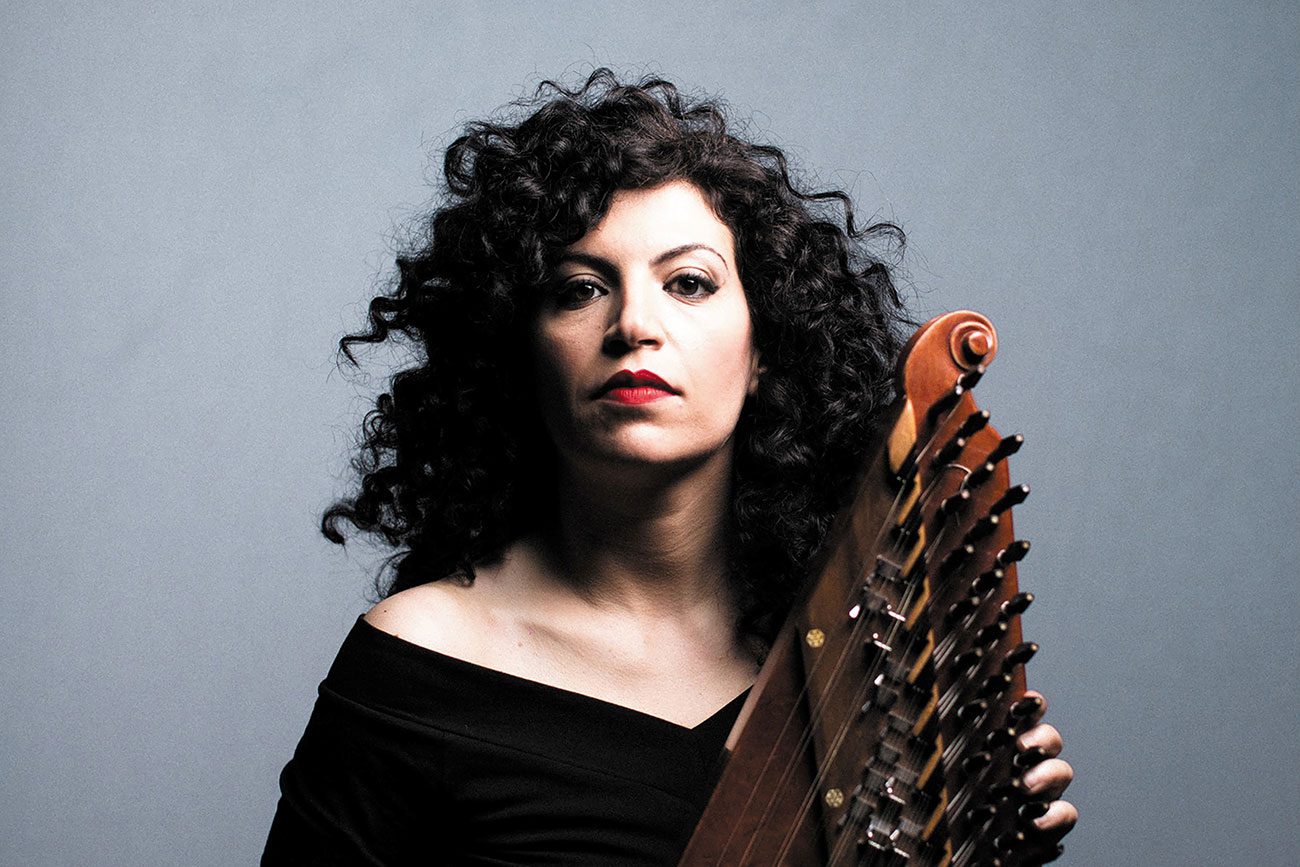She is an extraordinary musician who has led a remarkable life – and she is about to perform in York.
Maya Youssef is a virtuoso on the qānūn, the magnificent 78-string plucked zither that is at the heart of Arabic music.
When she plays it today, the music recalls the beauty of her Syrian homeland – and the heartache of witnessing it torn apart by war.
The qānūn evokes the sadness of that conflict but also ‘the sweet nectar of home’.
- Fri Oct 12 @ 7.30pm
- National Centre For Early Music, Walmgate, York
- £15-£17
- Tickets
Born in Damascus into a progressive family of writers and artists, Maya always wanted to be a musician.
She began studying music aged seven, initially on the violin. But she fell in love with the qānūn after a taxi driver played a recording as she went to her school.
Maya was told that this was a man’s instrument – but she was determined to learn the qānūn. At the age of 12 she won the Best Musician Award in the Syrian National Music Competition for Youth.
She moved to London to continue her studies, just two years before war broke out in Syria.
“From that point on making music was no longer a choice, it was a crucial means to express and come to terms with intense feelings of loss and sadness from seeing my people suffer and my land destroyed,” she said.
Ahead of her concert at the National Centre For Early Music, we talked to Maya about music, Syria, sadness and joy.
‘Music is the language of love’
Even when you play it within an ensemble, no one is able to ignore the qanun player. He or she is in the middle of the ensemble and there is only one person playing it.
I feel that for women to even begin to play it (not to mention playing it professionally), women need to step into their power. This can be naturally threatening to some men who want woman to be submissive and do as she is told. The number is thankfully increasing day by day, but I want to see more and more women step into their power and play the qanun.
The neighbourhoods were safe. I used to play outside till 10 in the night with my friends during the summer holidays from the time when I was nine years old. My household was full of my parents’ collection of CDs, vinyl cassettes and books from all over the world.
I lived in Syria till 2007. People saw me as different and open since my parents were very cultured and allowed me to do things like learning music, but they never minded. I used to love to light a candle, make a wish in Hanania church (the oldest church in the world) and walk through the narrow alley ways of old Damascus.
During Christmas time, we would have our tree up. Next to it my parents would place the Quran, the Turah and a statuette of the Buddha meditating. People would stare in confusion, but my parent would smile and say, “we are all of this”.
The music scene was blossoming as well. We started to have international stars give performances and there was a sense of thriving optimism in the air. I used to love to lose myself in nature. Walks by the sea, in the desert, in the mountains or in a forest were a favourite hobby of mine. I can go on and on but to conclude, it was deeply cultured, welcoming and just beautiful.

When I was watching the news and I saw a little girl of the same age as my son at the time dying in her bed in Damascus, I closed the door on myself with tears all over my face and Syrian Dreams just gushed out of me. It was my prayer for peace in Syria and the world.
There is a lot of sadness and even some difficult emotions in the music but there is also the light joy and the remembrance of the sweet nectar of home.
